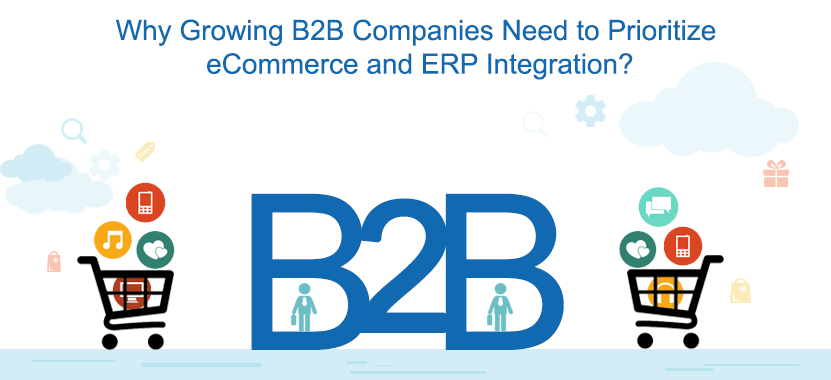As online B2B companies grow in scale, it becomes difficult for them to manage various aspects of their business like orders, pricing, inventory, customer and shipping information in a coordinated and efficient manner. Failure to manage these affects their customers’ overall experience which consequently can put their very survival at stake.
So the companies need to look for solutions for coordinating and streamlining their business’s various aspects. Integration of their eCommerce website and Enterprise Resource Planning (ERP) system is a great solution for synchronizing their various business processes.
The integration lets the information flow both ways between their site and ERP. So data needs to be entered into either of them once.
Major Impacts of eCommerce Website-ERP integration
The integration leads to various substantial efficiencies like automatic updation of inventory levels at both back-end and front-end.
When a product gets sold on your website (user interface), the inventory levels get automatically updated at the back-end (non-user interface), reducing your teams’ workload.
When new products are added to your inventory at the back end, their information gets automatically updated on your website, benefitting your customers.
Many eCommerce businesses do have one-way integration or batch updates presently, but true eCommerce-ERP integration can only be achieved with data flowing both ways between the two systems in real time.
Reasons You Should Go for the Integration
1. Complete integration of ERP and eCommerce systems provides updated inventory and pricing information to your customers and staff in real time.
2. Hiring more staff for managing the spiked up product demand is greatly reduced.
3. The integration helps you run your business more efficiently.
4. The key data about inventory, orders, customers, items, shipping and tracking can be passed between earlier independent systems.
Mistakes Due to Manual Processes
Lack of automated eCommerce and other digital ordering processes can cause mistakes like incomplete, incorrect or missing product information, wrong entry of shipping addresses and inaccurate inventory levels that make you oversell. Absence of two-way integration can eventually affect your whole end-to-end customer experience.
Why B2B Companies Overlook ERP-eCommerce Integration?
The prime reasons are cost and disruption caused to their business due to change of existing systems.
But the cost ultimately pays back in terms of benefits.
The ERP-eCommerce integration provides these major benefits to your business.
1. Customers can access their account information online at any time and check their order history, invoices, real time price and stock of available products. They receive automatic notification when their orders are shipped. Also, they can track their product delivery. This eventually leads to improved customer satisfaction, experience and loyalty which are crucial to your business’s profitability and growth.
2. The need for manually entering the item, order, inventory, customer and shipping data gets reduced. Also, there are less errors in the data and more output. Your staff becomes free to perform other more important tasks.
As customers can see their account information directly, they need not seek help from your customer service personnel for this, reducing their burden.
3. The inventory levels automatically, accurately and simultaneously get updated at eCommerce site and ERP system, thus letting you manage inventory without hiring extra staff.
4. Making price and product changes to inventory becomes simple.
5. You can flexibly add multiple online sales channels like web stores and marketplaces and offline sales channels like physical stores without loss of operational efficiency.
6. You can deal with increased sale demand without employing more human resources.
7. You can better manage the whole business process from one location.
As ERP and eCommerce integration involves a lot of complexity, you should hire only experienced B2B eCommerce ERP integration experts for performing it in a proper and effective manner.







Leave A Comment